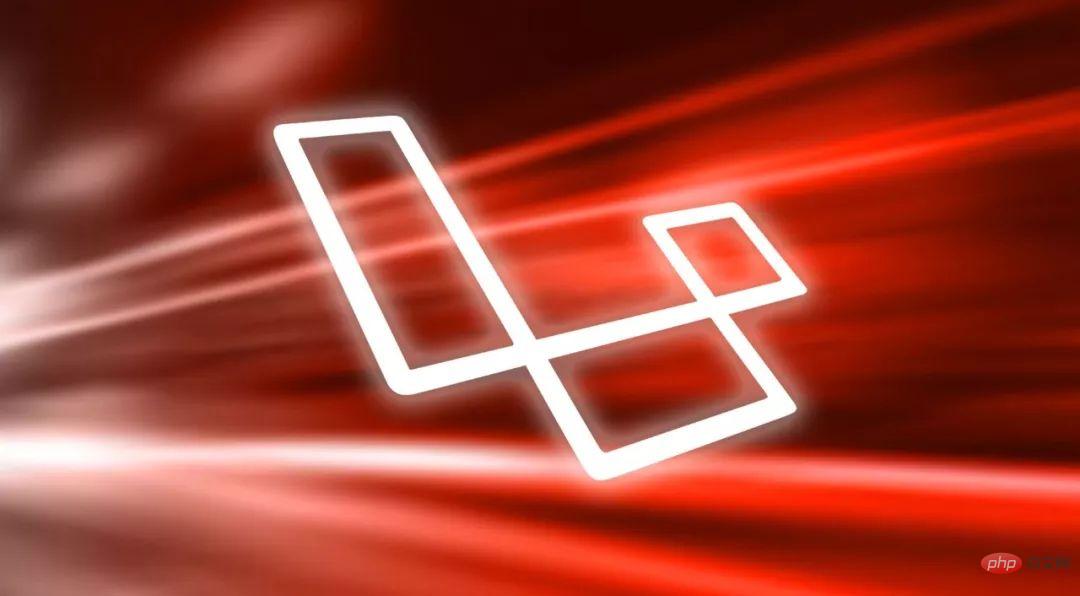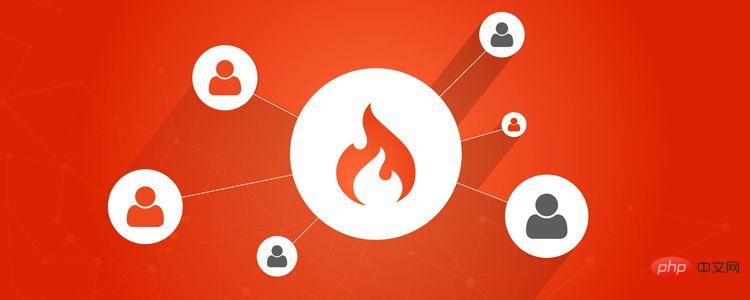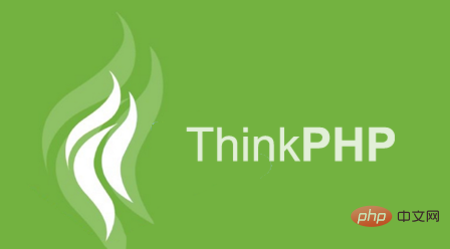 Backend Development
Backend Development
 PHP Tutorial
PHP Tutorial
 Five agile and easy-to-use PHP development frameworks recommended by conscience
Five agile and easy-to-use PHP development frameworks recommended by conscience
Five agile and easy-to-use PHP development frameworks recommended by conscience
In this article, we will recommend several frameworks for PHP agile development and tell you why they are popular. Come and find out.
Before we start, let’s first understand what agile development is.
Agile is a software development method in which a sprint is performed for each development plan, and each sprint must be completed to develop defined functions/modules. Once the sprint is complete, we can deliver it to the customer. Changes that need to be made in one sprint will be accepted in the next sprint, where the same process continues until final delivery.
Why should the company's development method be converted to agile-driven? Agile methods will bring development online faster and reduce development costs. The features and modules of each sprint can be thoroughly and effectively checked, making it easier to pass the sprint phase. And make changes to the requirements at each stage, rather than making changes after the entire product is developed.
Now that we understand what agile development is, let us identify the features that a framework should have so that it can be used in agile application development.
Features required by the framework include the following:
1 Less coding
2 Use reusable code parts for rapid development
3 Easy to change configuration
4 Easy to install
5 Easier to migrate and deploy
6 High security
7 Good documentation and developer community
Here are some excellent PHPs we recommend Framework:
Laravel

Laravel is a new framework built from some Symfony components, which ensures the reliability of the code. This framework uses Eloquent QRM, as well as a simple routing mechanism, easy-to-integrate third-party training, composer and package list, which can be used to integrate plug-ins and other functions. This can reduce the burden on developers. People can use composer to manage plugins. Laravel's queue functionality can be used to run long-running tasks in the background.
Laravle has all the tools you need to build large-scale applications and enterprise applications.
YII

YII framework is a component-based framework used to High-performance PHP framework for developing large-scale web applications.
YII's performance and development speed have been improving. For example, the automatic code generation function of Yii Gii is very easy to use, and it also facilitates developers to follow this style and maintain the unity of style.
YII source code is more readable, and you will feel great using PHPStorm to develop with Yii.
The Active Record model generated by YII's Gii will have comments to avoid minor errors.
YII2 is also running faster and faster.
Zend Framework

4. CodeIgniter

5、ThinkPHP

ThinkPHP is very similar to CodeIgniter. It is easy to configure and deploy, and the ThinkPHP source code is easier to use and the development speed is fast.
It supports modern PHP language features, such as packages and namespaces.
There may be more than hundreds of frameworks available in the PHP world, but the above are the most popular, advanced, fastest and most cost-effective PHP frameworks.
Do you know which PHP frameworks are good? Please leave a comment.
Related tutorials: PHP video tutorial
The above is the detailed content of Five agile and easy-to-use PHP development frameworks recommended by conscience. For more information, please follow other related articles on the PHP Chinese website!

Hot AI Tools

Undresser.AI Undress
AI-powered app for creating realistic nude photos

AI Clothes Remover
Online AI tool for removing clothes from photos.

Undress AI Tool
Undress images for free

Clothoff.io
AI clothes remover

Video Face Swap
Swap faces in any video effortlessly with our completely free AI face swap tool!

Hot Article

Hot Tools

Notepad++7.3.1
Easy-to-use and free code editor

SublimeText3 Chinese version
Chinese version, very easy to use

Zend Studio 13.0.1
Powerful PHP integrated development environment

Dreamweaver CS6
Visual web development tools

SublimeText3 Mac version
God-level code editing software (SublimeText3)

Hot Topics
 1387
1387
 52
52
 Comparison of the advantages and disadvantages of PHP frameworks: Which one is better?
Jun 04, 2024 pm 03:36 PM
Comparison of the advantages and disadvantages of PHP frameworks: Which one is better?
Jun 04, 2024 pm 03:36 PM
The choice of PHP framework depends on project needs and developer skills: Laravel: rich in features and active community, but has a steep learning curve and high performance overhead. CodeIgniter: lightweight and easy to extend, but has limited functionality and less documentation. Symfony: Modular, strong community, but complex, performance issues. ZendFramework: enterprise-grade, stable and reliable, but bulky and expensive to license. Slim: micro-framework, fast, but with limited functionality and a steep learning curve.
 Performance differences of PHP frameworks in different development environments
Jun 05, 2024 pm 08:57 PM
Performance differences of PHP frameworks in different development environments
Jun 05, 2024 pm 08:57 PM
There are differences in the performance of PHP frameworks in different development environments. Development environments (such as local Apache servers) suffer from lower framework performance due to factors such as lower local server performance and debugging tools. In contrast, a production environment (such as a fully functional production server) with more powerful servers and optimized configurations allows the framework to perform significantly better.
 PHP Frameworks and Microservices: Cloud Native Deployment and Containerization
Jun 04, 2024 pm 12:48 PM
PHP Frameworks and Microservices: Cloud Native Deployment and Containerization
Jun 04, 2024 pm 12:48 PM
Benefits of combining PHP framework with microservices: Scalability: Easily extend the application, add new features or handle more load. Flexibility: Microservices are deployed and maintained independently, making it easier to make changes and updates. High availability: The failure of one microservice does not affect other parts, ensuring higher availability. Practical case: Deploying microservices using Laravel and Kubernetes Steps: Create a Laravel project. Define microservice controllers. Create Dockerfile. Create a Kubernetes manifest. Deploy microservices. Test microservices.
 Integration of PHP frameworks with DevOps: the future of automation and agility
Jun 05, 2024 pm 09:18 PM
Integration of PHP frameworks with DevOps: the future of automation and agility
Jun 05, 2024 pm 09:18 PM
Integrating PHP frameworks with DevOps can improve efficiency and agility: automate tedious tasks, free up personnel to focus on strategic tasks, shorten release cycles, accelerate time to market, improve code quality, reduce errors, enhance cross-functional team collaboration, and break down development and operations silos
 The best PHP framework for microservice architecture: performance and efficiency
Jun 03, 2024 pm 08:27 PM
The best PHP framework for microservice architecture: performance and efficiency
Jun 03, 2024 pm 08:27 PM
Best PHP Microservices Framework: Symfony: Flexibility, performance and scalability, providing a suite of components for building microservices. Laravel: focuses on efficiency and testability, provides a clean API interface, and supports stateless services. Slim: minimalist, fast, provides a simple routing system and optional midbody builder, suitable for building high-performance APIs.
 The application potential of artificial intelligence in PHP framework
Jun 03, 2024 am 11:01 AM
The application potential of artificial intelligence in PHP framework
Jun 03, 2024 am 11:01 AM
The application potential of Artificial Intelligence (AI) in PHP framework includes: Natural Language Processing (NLP): for analyzing text, identifying emotions and generating summaries. Image processing: used to identify image objects, face detection and resizing. Machine learning: for prediction, classification and clustering. Practical cases: chatbots, personalized recommendations, fraud detection. Integrating AI can enhance website or application functionality, providing powerful new features.
 PHP Frameworks and Artificial Intelligence: A Developer's Guide
Jun 04, 2024 pm 12:47 PM
PHP Frameworks and Artificial Intelligence: A Developer's Guide
Jun 04, 2024 pm 12:47 PM
Use a PHP framework to integrate artificial intelligence (AI) to simplify the integration of AI in web applications. Recommended framework: Laravel: lightweight, efficient, and powerful. CodeIgniter: Simple and easy to use, suitable for small applications. ZendFramework: Enterprise-level framework with complete functions. AI integration method: Machine learning model: perform specific tasks. AIAPI: Provides pre-built functionality. AI library: handles AI tasks.
 Which PHP framework offers the most comprehensive extension library for rapid development?
Jun 04, 2024 am 10:45 AM
Which PHP framework offers the most comprehensive extension library for rapid development?
Jun 04, 2024 am 10:45 AM
The PHP framework extension library provides four frameworks for selection: Laravel: Known for its vast ecosystem and third-party packages, it provides authentication, routing, validation and other extensions. Symfony: Highly modular, extending functionality through reusable "Bundles", covering areas such as authentication and forms. CodeIgniter: lightweight and high-performance, providing practical extensions such as database connection and form validation. ZendFramework: Powerful enterprise-level features, with extensions such as authentication, database connection, RESTfulAPI support, etc.



